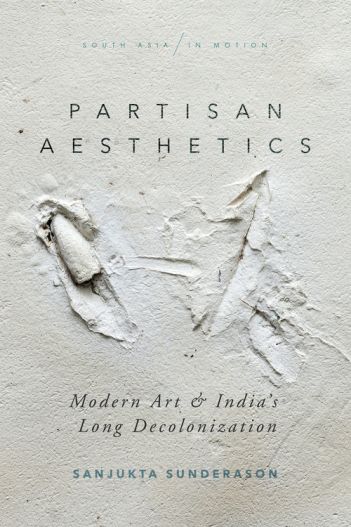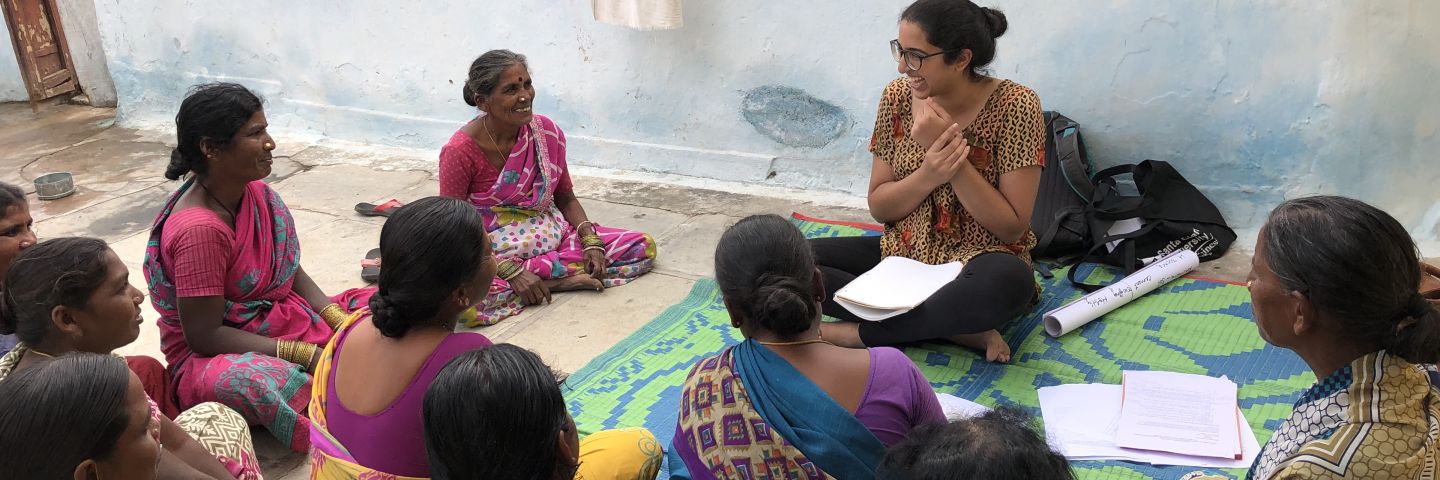Partisan Aesthetics: Modern Art and India’s Long Decolonization

March 30, 2021
11:30 am
Partisan Aesthetics explores art's entanglements with histories of war, famine, mass politics and displacements that marked late-colonial and postcolonial India. Introducing "partisan aesthetics" as a conceptual grid, the book identifies ways in which art became political through interactions with left-wing activism during the 1940s, and the afterlives of such interactions in post-independence India. Using an archive of artists and artist collectives working in Calcutta from these decades, Sanjukta Sunderason argues that artists became political not only as reporters, organizers and cadre of India's Communist Party, or socialist fellow travelers, but through shifting modes of political participations and dissociations. Unmooring questions of Indian modernism from its hitherto dominant harnesses to national or global affiliations, Sunderason activates, instead, distinctly locational histories that refract transnational currents. She analyzes largely unknown and dispersed archives—drawings, diaries, posters, periodicals, and pamphlets, alongside paintings and prints—and insists that art as archive is foundational to understanding modern art's socialist affiliations during India's long decolonization. By bringing together expanding fields of South Asian art, global modernisms, and Third World cultures, Partisan Aesthetics generates a new narrative that combines political history of Indian modernism, social history of postcolonial cultural criticism, and intellectual history of decolonization.
This event is co-sponsored by the Columbia University South Asia Institute.
Debashree Mukherjee is Assistant Professor of film and media in the Department of Middle Eastern, South Asian, and African Studies (MESAAS) at Columbia University. Her first academic monograph, Bombay Hustle: Making Movies in a Colonial City (2020), approaches film history as an ecology of material practice and practitioners. In her new research she is developing a media history of indenture and South-South migrations, spanning photography, communications infrastructures, and film traffic. Debashree edits the peer-reviewed journal BioScope: South Asian Screen Studies and has published in journals such as Film History and Feminist Media Histories.
Iftikhar Dadi is Associate Professor and Chair of Cornell University’s Department of History of Art, Director of the South Asia Program, and Board Member of the Institute for Comparative Modernities. He researches art from a global and transnational perspective, with emphasis on questions of methodology and intellectual history.
Dwaipayan Banerjee is an Associate Professor of Science, Technology, and Society at the Massachusetts Institute of Technology. Banerjee's first monograph Enduring Cancer: Life, Death and Diagnosis in Delhi presents the efforts of the urban poor in Delhi to carve out a livable life with cancer, as they negotiate an over-extended health system struggling to respond to the disease. He has also co-authored Hematologies: The Political Life of Blood in India with Jacob Copeman. Banerjee's current research—Decolonizing Science: Towards a Cosmopolitics of Art, Physics and Computing in 1950s India—tracks scientific and aesthetic internationalisms in early postcolonial Bombay and Calcutta.
Sanjukta Sunderason is a historian of 20th century aesthetics, working with the interfaces of visual art and political thought. She is interested in particular in the ways in which art reflects and reframes struggles, imaginations, and dialogues around 20th-century decolonization. Her first book, Partisan Aesthetics: Modern Art and India’s Long Decolonization (2020) studied left-wing aesthetics in dialogue with formations of modern art in late-colonial and early postcolonial India. She is currently working on two book projects: a co-edited volume on the aesthetics of the postcolonial left in South Asia (with Lotte Hoek, University of Edinburgh); and a monograph on ideas/forms of the transnational in the art of decolonial liberation movements. Sunderason lives and works in the Netherlands, where she is Assistant Professor in the department of History of Art, University of Amsterdam.
Additional Information
Program
Mario Einaudi Center for International Studies
South Asia Program

